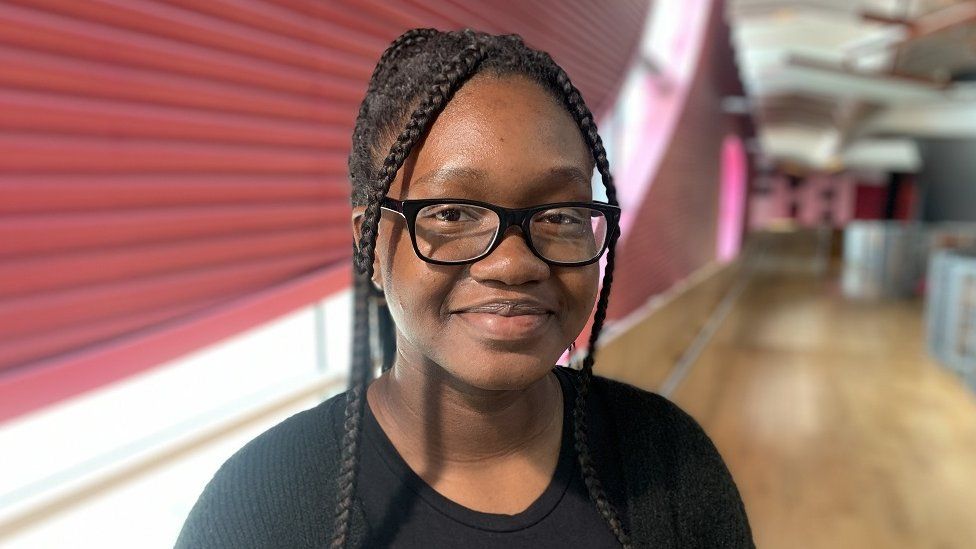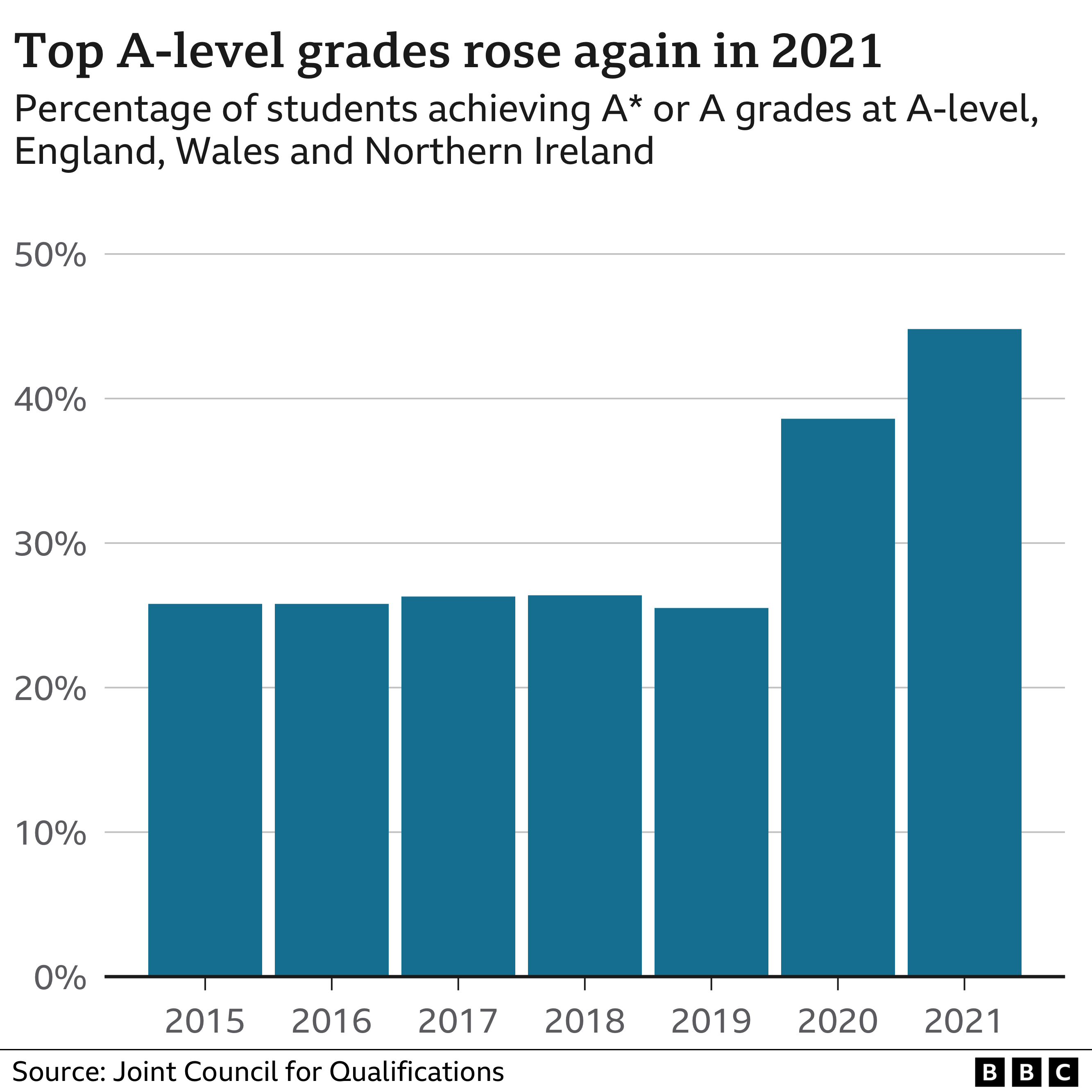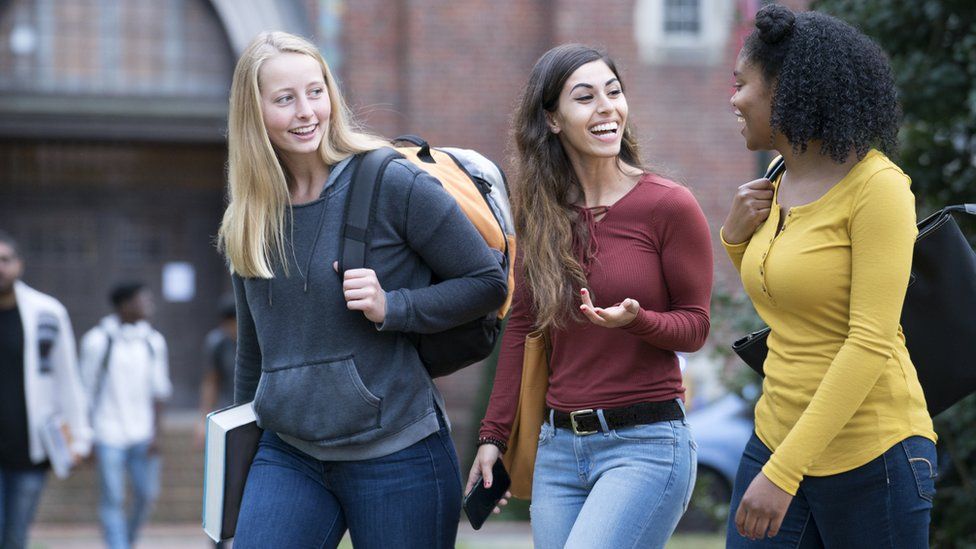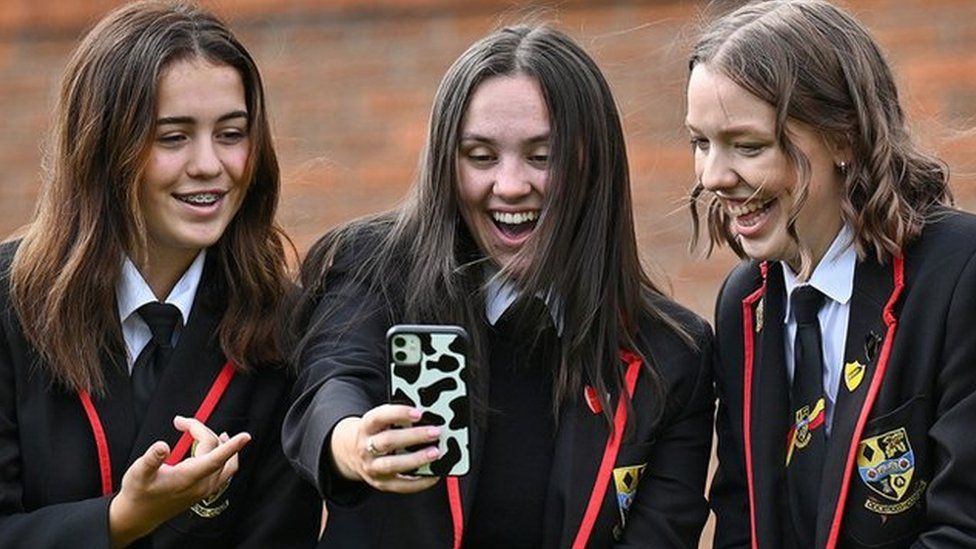 Getty Images
Getty ImagesStudents in England, Wales and Northern Ireland will be opening A-level, T-level and BTec results this morning.
It is the first time since 2019 that A-level grades are being based on public exams, after two years of cancellations because of Covid.
Overall grades for A-levels are expected to be lower than 2020 and 2021, when grades based on teachers’ assessments led to a boom in top marks.
Ofqual has said results would reflect “a midway point” between 2019 and 2021.
England’s exam watchdog previously stated “in the interests of fairness… 2022 will be a transition year to reflect that we are in a pandemic recovery period and students’ education has been disrupted”.
Similar plans were put in place for Northern Ireland and Wales.
In Scotland, where pupils received their exam results on 9 August, the pass rate at Higher level fell to 78.9% – down from 87.3% in 2021.
Thursday also sees results for AS-levels released. In Wales and Northern Ireland, these will count towards a student’s final A-level result next summer.
In addition, this is the first year of results for new vocational T-level qualifications in England. Each T-level is designed to be equivalent to three A-levels.
To achieve the technical qualification, time is split between classroom learning and industry placements – with students awarded a pass, merit, distinction or distinction* after two years of work and study.

‘Hard work’

Praise, who is 18 and studied at Central Saint Michael’s Sixth Form, in Birmingham, had plans to spend Wednesday night chatting to her family, watching films and trying not to get too stressed before results day.
She’ll be receiving the outcomes of A-levels in History and English Literature, and a Level 3 BTec in Health and Social Care.
She is among around 200,000 students receiving their Level 3 BTec results.
“What’s done is done,” she tells the BBC. “I can’t change what I’ve written in the exam.”
After missing out on GCSE exams because of Covid, Praise was glad assessments were in-person once again this year.
“I wanted to write my own exams, get my own grades and see that it was my hard work that got me to that moment,” she says.
Praise has conditional offers to study at university, but is hoping to take a gap year and apply to be a nurse in the RAF.
“I’ve always been interested in the military and taking care of people… this is my chance to merge those two things together.”

Special measures were introduced for this year’s A-levels to counteract the disruption to education caused by Covid, such as advanced information about topics.
And the grade boundaries – the number of marks needed for each grade – are more lenient this year than they were before the pandemic.
Overall, A-level grades are likely to be lower than last year. This is a result of the system being adjusted to counteract the sharp rise in top grades over the past two years, rather than a reflection of individual student work.
Grades are still intended to be higher than 2019.

It will be a competitive year for some students looking to start university.
There are more 18-year-olds in the population this year, and a slightly higher percentage of them are applying for places, according to the university admissions service Ucas.
The toughest competition will be for places at the most academically selective universities. They have been more cautious this year with the number of offers they have made, after a couple of bulge years when top grades proliferated in 2020 and 2021.
Competition for places is also likely to be high for certain courses – including some heavily-subsidised degrees, such as medicine, which are reintroducing caps on student numbers this year.
However, across the board, Ucas has predicted that “a record, or near-record” number of teenagers will obtain their first choice.
In a letter to students, written in conjunction with exams regulator Ofqual, Ucas stated that universities were aware of how grades were being awarded this year, and advised students should not be unduly concerned that lower grades will put them at a disadvantage.
“In 2019, when exams last went ahead, around three-quarters of UK 18-year-old applicants were placed at their first choice. Come results day this year, UCAS again expects most students will secure their place at their first choice,” the letter stated.

Are you having to rethink your plans after getting your results? Tell us about your experience by emailing haveyoursay@bbc.co.uk.
Please include a contact number if you are willing to speak to a BBC journalist. You can also get in touch in the following ways:
- WhatsApp: +44 7756 165803
- Tweet: @BBC_HaveYourSay
- Upload your pictures/video here
- Or fill out the form below
- Please read our terms & conditions and privacy policy
If you are reading this page and can’t see the form you will need to visit the mobile version of the BBC website to submit your question or comment or you can email us at HaveYourSay@bbc.co.uk. Please include your name, age and location with any submission.





